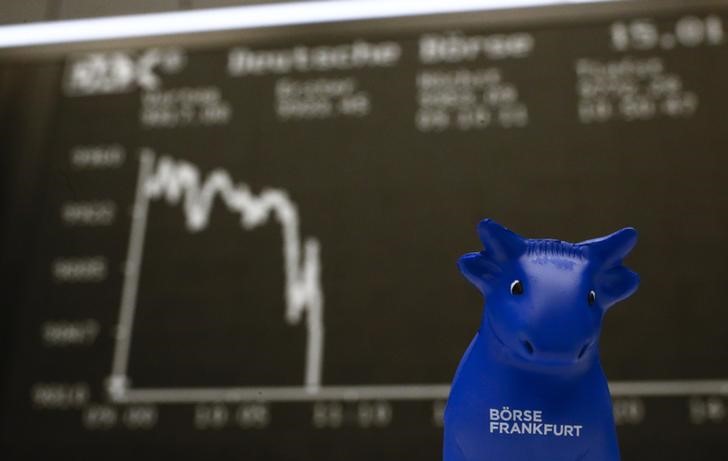By Peter Nurse
Investing.com - European stock markets are expected to plunge at the open Monday, as investors digest the news of Western governments ramping up the sanctions on Russia and President Vladimir Putin placing his country's nuclear deterrent on high alert.
At 2:05 AM ET (0705 GMT), the DAX futures contract in Germany traded 3.2% lower, CAC 40 futures in France dropped 2.5% and the FTSE 100 futures contract in the U.K. fell 2.2%.
The abject start to the week comes after equities rallied on Friday, as traders reacted to the rapidly changing geopolitical situation in eastern Europe.
Western nations announced plans over the weekend to further sanction Russia as it continued to strike targets in Ukraine, excluding some Russian banks from the SWIFT financial messaging system, used by most financial institutions around the globe for trillions of dollars worth of transactions. Payment for Russian energy supplies will, however, still be possible.
Additionally, the EU and U.S. announced moves that effectively froze over half the extent the Russian Central Bank's foreign reserves, limiting its ability to support the ruble, which fell some 30% in early trading on Monday. That prompted the Bank of Russia to hike its key interest rate to 20%, while S&P Global Ratings downgraded Russian bonds to junk status.
In a marked shift, the EU also said it would start sending lethal weapons to Ukraine to help it defend itself, and EU Commission head Ursula von der Leyen also signalled the bloc would accept an application for membership from the country. Russian President Vladimir Putin put Russia's nuclear deterrent on high alert on Sunday in response to the more aggressive stance by the West.
All this marks a rapid escalation in the efforts of the U.S. and its allies to isolate Russia.
The corporate sector has accordingly braced for big losses on its investments in Russia. BP (NYSE:BP), the biggest foreign investor in the country, said it will exit its stake in oil giant Rosneft, taking a hit of up to $25 billion as a result.
This abrupt move puts the spotlight on other Western corporations with operations in Russia, notably banks such as Austria's Raiffeisen Bank International (OTC:RAIFY) and Italy's UniCredit (OTC:UNCRY).
There is still some hope of diplomacy, after Ukraine said negotiations with Moscow without preconditions would be held at the Belarusian-Ukrainian border, starting later Monday.
However, oil prices soared amid fears the additional sanctions will disrupt oil shipments from Russia, the world's second-largest crude producer and the largest supplier of natural gas to Europe.
Global output is already struggling to meet the rebound in consumption fueled by the reopening of economies after the pandemic, and any disruptions to Russian flows will only exacerbate this.
The Organization of the Petroleum Exporting Countries and allies including Russia, a group called OPEC+, is set to meet later this week to discuss further production levels.
By 2:05 AM ET, U.S. crude futures traded 5.7% higher at $96.81 a barrel, while the Brent contract rose 5.6% to $99.35.
Additionally, gold futures rose 1.2% to $1,909.95/oz, while EUR/USD traded 0.9% lower at 1.1164.
Quarterly earnings are also scheduled from the likes of Atos (PA:ATOS), Signify (AS:LIGHT) and GlaxoSmithKline (NYSE:GSK).
